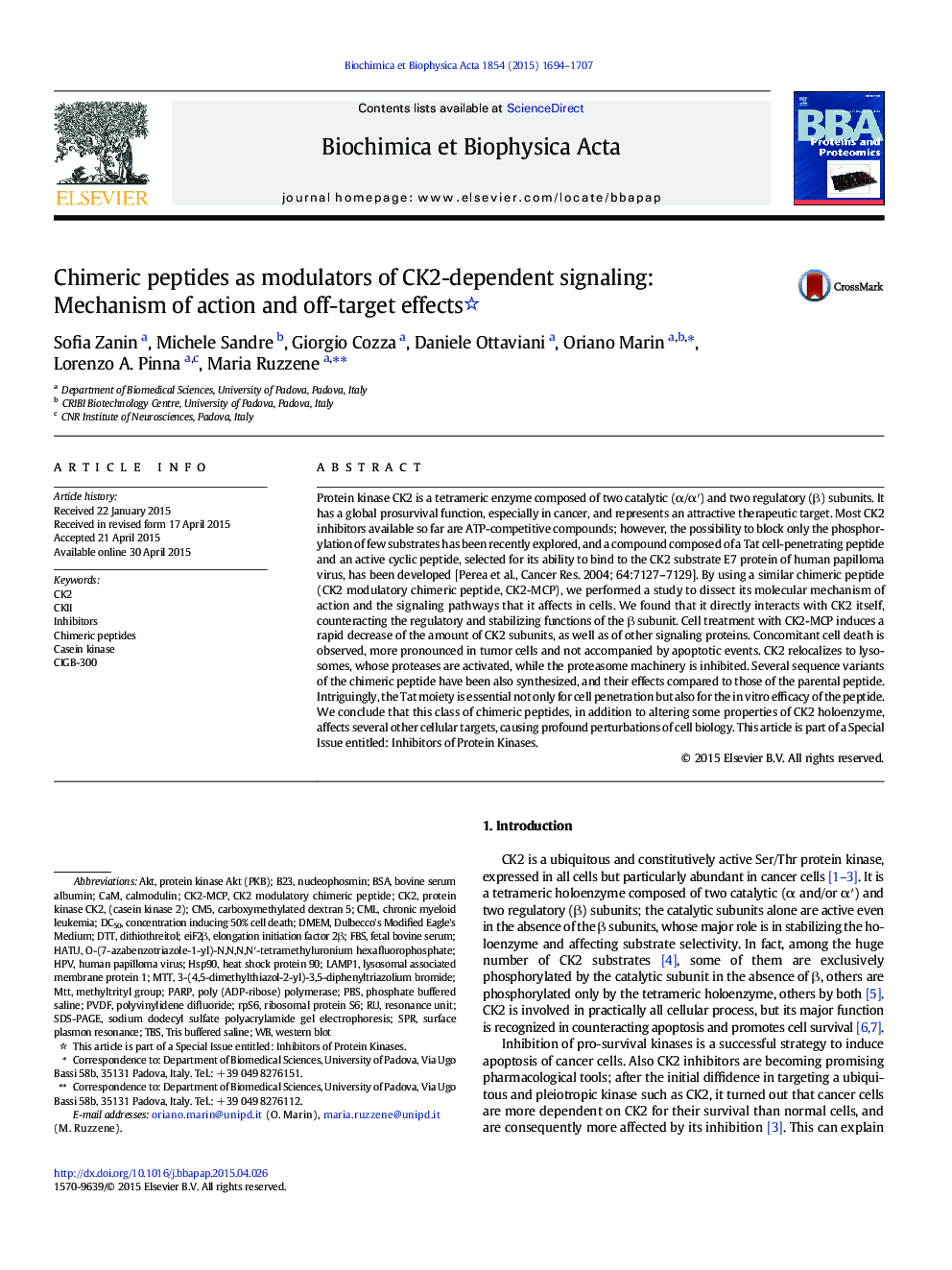| Article ID | Journal | Published Year | Pages | File Type |
|---|---|---|---|---|
| 1177747 | Biochimica et Biophysica Acta (BBA) - Proteins and Proteomics | 2015 | 14 Pages |
•Chimeric peptides (Tat + an active sequence) impair the functions of β CK2.•The Tat moiety is required for all functions, not only for cell penetration.•When used in cell treatment they induce a dramatic decrease of CK2 amount.•They induce cell death without markers of apoptosis occurrence.•They inhibit proteasome and enhance lysosome protease activity.
Protein kinase CK2 is a tetrameric enzyme composed of two catalytic (α/α′) and two regulatory (β) subunits. It has a global prosurvival function, especially in cancer, and represents an attractive therapeutic target. Most CK2 inhibitors available so far are ATP-competitive compounds; however, the possibility to block only the phosphorylation of few substrates has been recently explored, and a compound composed of a Tat cell-penetrating peptide and an active cyclic peptide, selected for its ability to bind to the CK2 substrate E7 protein of human papilloma virus, has been developed [Perea et al., Cancer Res. 2004; 64:7127–7129]. By using a similar chimeric peptide (CK2 modulatory chimeric peptide, CK2-MCP), we performed a study to dissect its molecular mechanism of action and the signaling pathways that it affects in cells. We found that it directly interacts with CK2 itself, counteracting the regulatory and stabilizing functions of the β subunit. Cell treatment with CK2-MCP induces a rapid decrease of the amount of CK2 subunits, as well as of other signaling proteins. Concomitant cell death is observed, more pronounced in tumor cells and not accompanied by apoptotic events. CK2 relocalizes to lysosomes, whose proteases are activated, while the proteasome machinery is inhibited. Several sequence variants of the chimeric peptide have been also synthesized, and their effects compared to those of the parental peptide. Intriguingly, the Tat moiety is essential not only for cell penetration but also for the in vitro efficacy of the peptide. We conclude that this class of chimeric peptides, in addition to altering some properties of CK2 holoenzyme, affects several other cellular targets, causing profound perturbations of cell biology. This article is part of a Special Issue entitled: Inhibitors of Protein Kinases.
